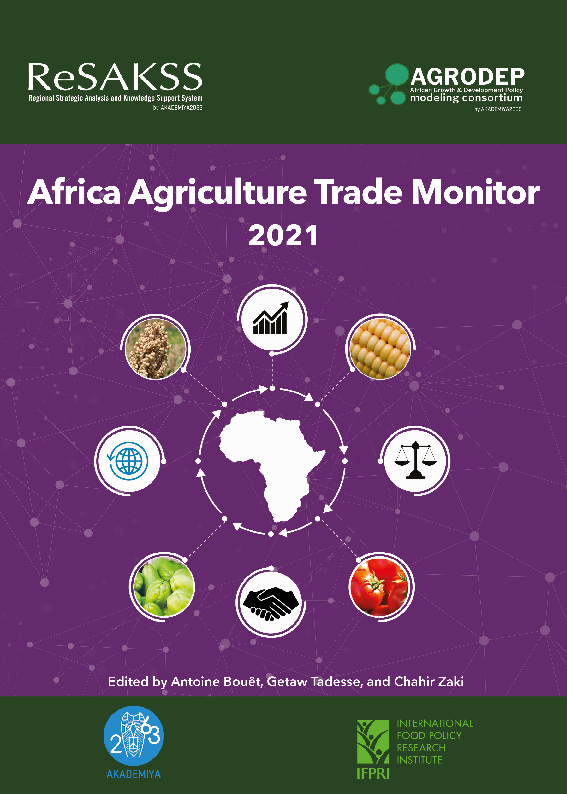- Share this article
- Subscribe to our newsletter
Africa Agriculture Trade Monitor 2021
The fourth edition of the annual Africa Agriculture Trade Monitor (AATM) stresses processed agricultural goods as a focus area for growing trade, as well as the need for more high-quality trade data. It was published under the African Growth and Development Policy (AGRODEP) Modeling Consortium and the Regional Strategic Analysis and Knowledge Support System (ReSAKSS) programmes as a collaborative effort by AKADEMIYA2063 and the International Food Policy Research Institute (IFPRI) in September 2021.
The beginning of trading under the African Continental Free Trade Area (AfCFTA) presents significant opportunities to increase agricultural trade among African countries, but disruptions caused by the COVID-19 pandemic and long-standing obstacles such as non-tariff barriers and high trade costs must be addressed to meet this potential, according to the report.
At the global level, African countries continue to specialise in unprocessed agricultural products. Most African economies are largely undiversified, with comparative advantage in a relatively small number of products. Although Africa’s agricultural exports constitute a small share of world agricultural exports, African exporters dominate world markets in a handful of products: the continent accounts for over 70 per cent of global exports in unprocessed cashew nuts, cocoa beans, cocoa shells and husks, kola nuts and vanilla. Most of these are niche products with relatively small markets.
Africa’s trade competitiveness continues to be limited by both domestic factors – such as low agricultural productivity and investment, poor transport and communications infrastructure, and inefficient customs procedures – and global trade barriers. Non-tariff measures (NTMs), such as sanitary and phytosanitary measures, technical barriers to trade, and price and quantity controls, pose some of the biggest constraints on Africa’s agricultural exports. For intra-African trade, NTMs are even more damaging than tariffs, and the report authors call for their more careful design so that they enhance rather than hinder trade.
The report finds that growth in the value of intra-African agricultural trade has not yet recovered from a decline in the mid-2010s, suggesting that the continent will face significant challenges in meeting the Malabo Declaration goal of tripling the value of intra-African agricultural trade by 2025. However, trade in processed agricultural products resisted this trend, showing a slight increase since 2016. This indicates that despite the continent’s lingering comparative advantage in unprocessed primary products at the global level, African food system actors are increasingly adding value to the products traded within the continent.
(IFPRI/ile)
Read more and download the report at IFPRI website





Add a comment
Be the First to Comment